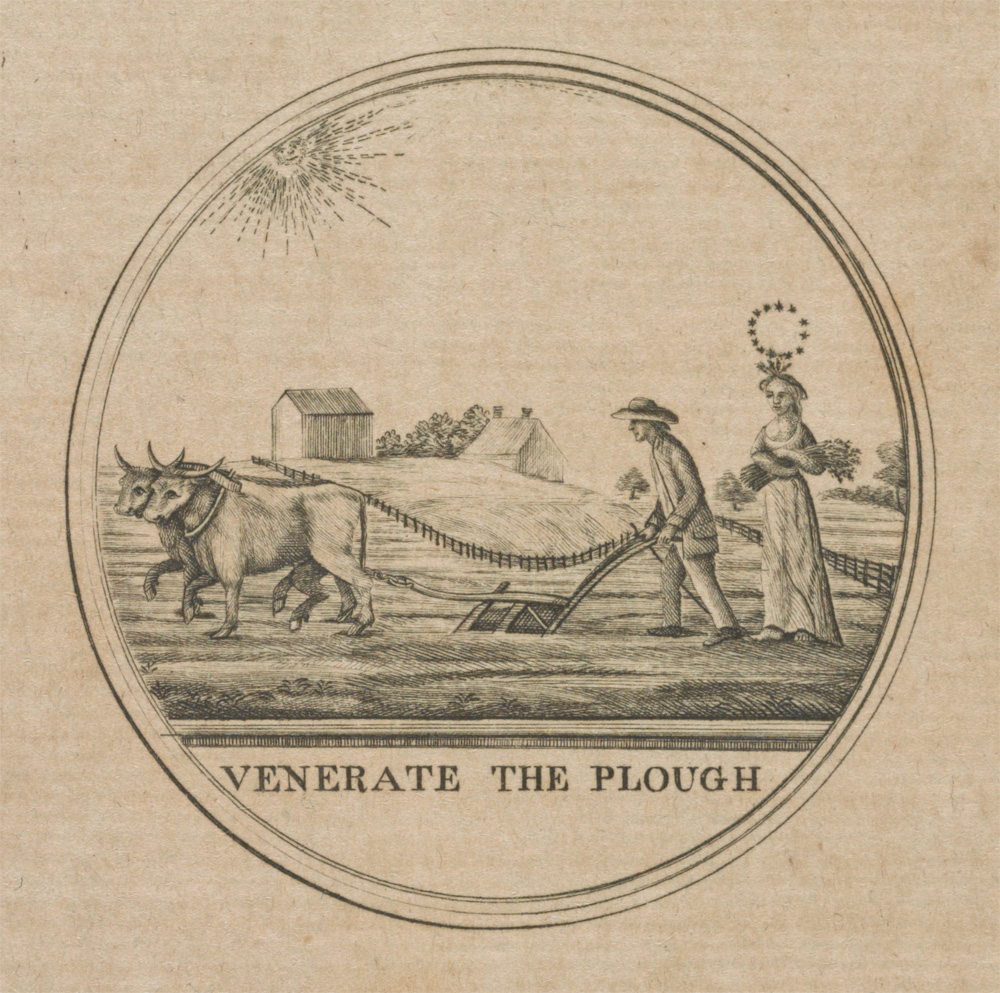
Some early Americans idealized and mythologized the yeoman farmer as the epitome of American values, as with this engraving that was printed in the Columbian Magazine of Philadelphia in 1786. Common farmers dotted much of Princeton’s expansive land.
Library of Congress
As Stony Brook settlers divided their large land purchases among their descendants, a new generation of agriculturalists spread across Princeton’s western countryside. These farmers generally maintained smaller plots than their parents, with 200 acres being a typical size to inherit. With homes small, functional, and not necessarily symmetrical, the common farmers of the next generation followed the modest examples of their parents. Many also remained active in the Quaker community, though some would convert to Presbyterianism, as the influence of the College of New Jersey (now Princeton University) altered the spiritual landscape of the community.
The yeoman farmer -- later idealized by Thomas Jefferson and his political supporters -- refers to the population of common people like these, who maintained small subsistence farms largely by family labor. In New Jersey, however, it was not uncommon for middling families to possess one or two enslaved people who would help complete field or domestic chores.
Some of the houses in this section were tenant farms, rented out to slightly poorer families. A tenant farm was a portion of a larger landowner’s farm which he had sectioned off for landless farmers to rent and develop. Tenancy in colonial America was generally temporary, and most tenants moved on to purchase their own land, sometimes the very tract they had been developing.
You will notice that the blurbs for these houses are considerably shorter. The reason is that records of ordinary people like these are much more difficult to come by. Such is the nature of historical research -- it is always more prominent citizens whose stories are best preserved.
Buildings:
Clarke Cottage
Ezekiel Smith House
Sylvanius Hunt House
Old Stone House
481 Stockton Street
498 Stockton Street
Thomas Olden House
The Bouwerie
Thomas Clarke House
Updike Farmstead
537 Stockton Street
